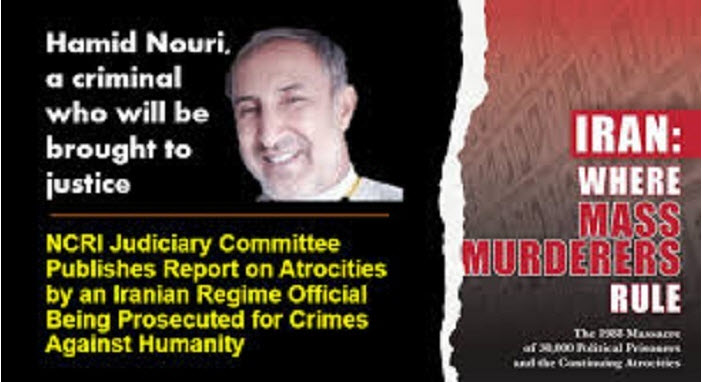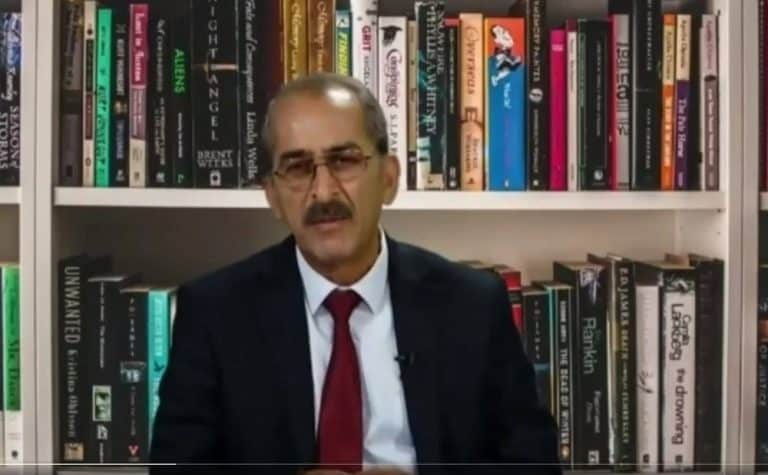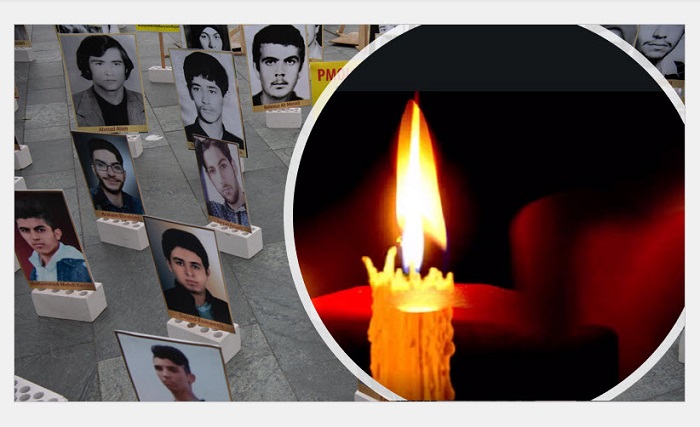
(NCRI) and (PMOI / MEK Iran): Noury was arrested by Swedish authorities in 2019 under the principle of universal jurisdiction for his role in the massacre at Gohardasht prison in Iran in the summer of 1988 when he was a prison officer.
With the trial of former Iranian prison official Hamid Noury still ongoing in Sweden, the case was moved to Albania for a brief period to hear testimony from survivors of the 1988 massacre in Iran, in which over 30,000 political prisoners were sentenced to death for supporting the Iranian Resistance group, the People’s Mojahedin of Iran (PMOI / MEK Iran).Noury was arrested by Swedish authorities in 2019 under the principle of universal jurisdiction for his role in the massacre at Gohardasht prison in Iran in the summer of 1988 when he was a prison officer.
I went to the hall it was like awful days of the 1980s
“I was told that I would be the first person to testify in Albania,” claimed former political prisoner Mohammad Zand, who testified during the trial. So, I went to the Durres District Court. “When I first walked into the hall, I was taken back to those awful days in the 1980s, particularly the summer of 1988, when my friends were brutally killed.”
In 1981, Mohammad Zand was a student when he was jailed for supporting the MEK, which was still in its early stages. He received an 11-year term, while his brother Reza, who was detained at the same time on the same charges, received a 10-year sentence. Reza became one of the victims of the 1988 massacre who were suddenly given death sentences in response to a fatwa issued by then-Supreme Leader Ruhollah Khomeini. While Mohammad was released at the end of his sentence, Reza became one of the victims of the 1988 massacre who were suddenly given death sentences in response to a fatwa issued by then-Supreme Leader Ruhollah Khomeini.

(PMOI / MEK Iran) and (NCRI): “When I first walked into the hall, I was taken back to those awful days in the 1980s, particularly the summer of 1988, when my friends were brutally killed.”
Prisoners realized something bad was about to happen
“When it came time for me to stand before the death commission, I asked its four members why they had executed my brother despite the fact that the criminal court had already given him a lesser sentence,” Zand stated. I received no response, but it became evident later that the death commission’s sole aim was to remove everyone who they believed was still dedicated to the MEK’s democratic beliefs.”
Reza handed over his personal items to Zand and conveyed the thought that they would not see each other again, thus Zand assumed his brother was aware of his fate. During their mother’s last visit to the prison to see both of her sons, he voiced the same sentiment to her.
When newspapers stopped being delivered and televisions were removed from cells prior to the horrors, prisoners apparently got concerned that something bad was about to happen. To the point where, before the jail was sealed down, inmates felt compelled to warn their friends and family members of their concerns in order to get the word out to the outside world.

(PMOI / MEK Iran) and (NCRI): During their mother’s last visit to the prison to see both of her sons, he voiced the same sentiment to her.
Death Commission’sentenced hundreds to death
“It is thus deeply upsetting to know that no one took action to stop it,” Zand remarked. Although Iran’s activist group could not have done much on their own, members of that community reached out to their friends and families in the Iranian diaspora, urging them to raise the alarm about a looming crime against humanity.”
When the Iranian Resistance presented evidence of the killing to Western nations, those governments dismissed their concerns, preferring to appease the Iranian dictatorship in order to maintain favorable relations. Regrettably, this tactic is still in effect today, as the regime continues to conceal its heinous crimes against humanity.
The depth of their cover-up came to a head in June of this year when top regime officials staged the bogus election of Ebrahim Raisi. Raisi was one of the worst offenders of the 1988 massacre, serving on the ‘Death Commission’ in Tehran, which sentenced hundreds of detainees to death.
“Western powers’ refusal to condemn Raisi’s specific role in the 1988 massacre represents a whole new level of betrayal of shared humanitarian principles,” Zand said. Fortunately, the work of rights organizations like Amnesty International, as well as numerous legislators and the single European government, which have truly committed to reversing long-standing policies of neglect, help to offset this collective inertia.”
MEK Iran (follow us on Twitter and Facebook)
and follow Maryam Rajavi’s on her site Twitter & Facebook
and follow NCRI (Twitter & Facebook) and People’s Mojahedin Organization of Iran – MEK IRAN – YouTube

